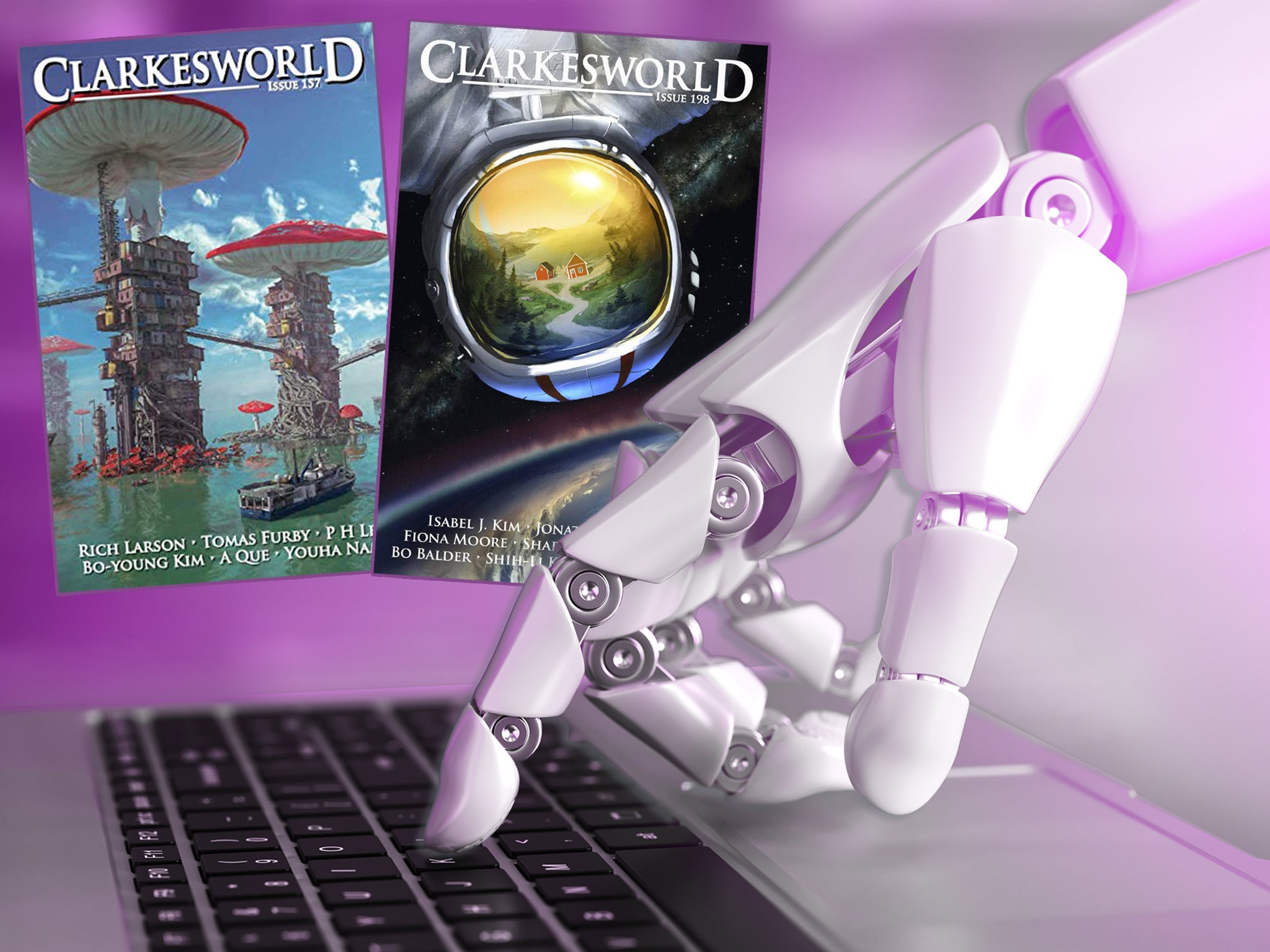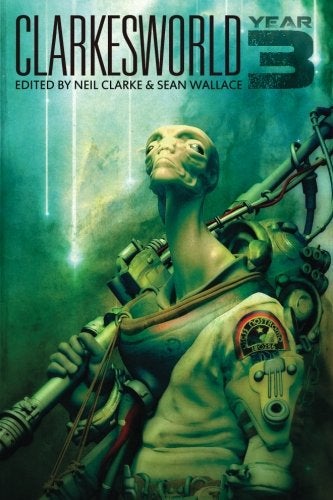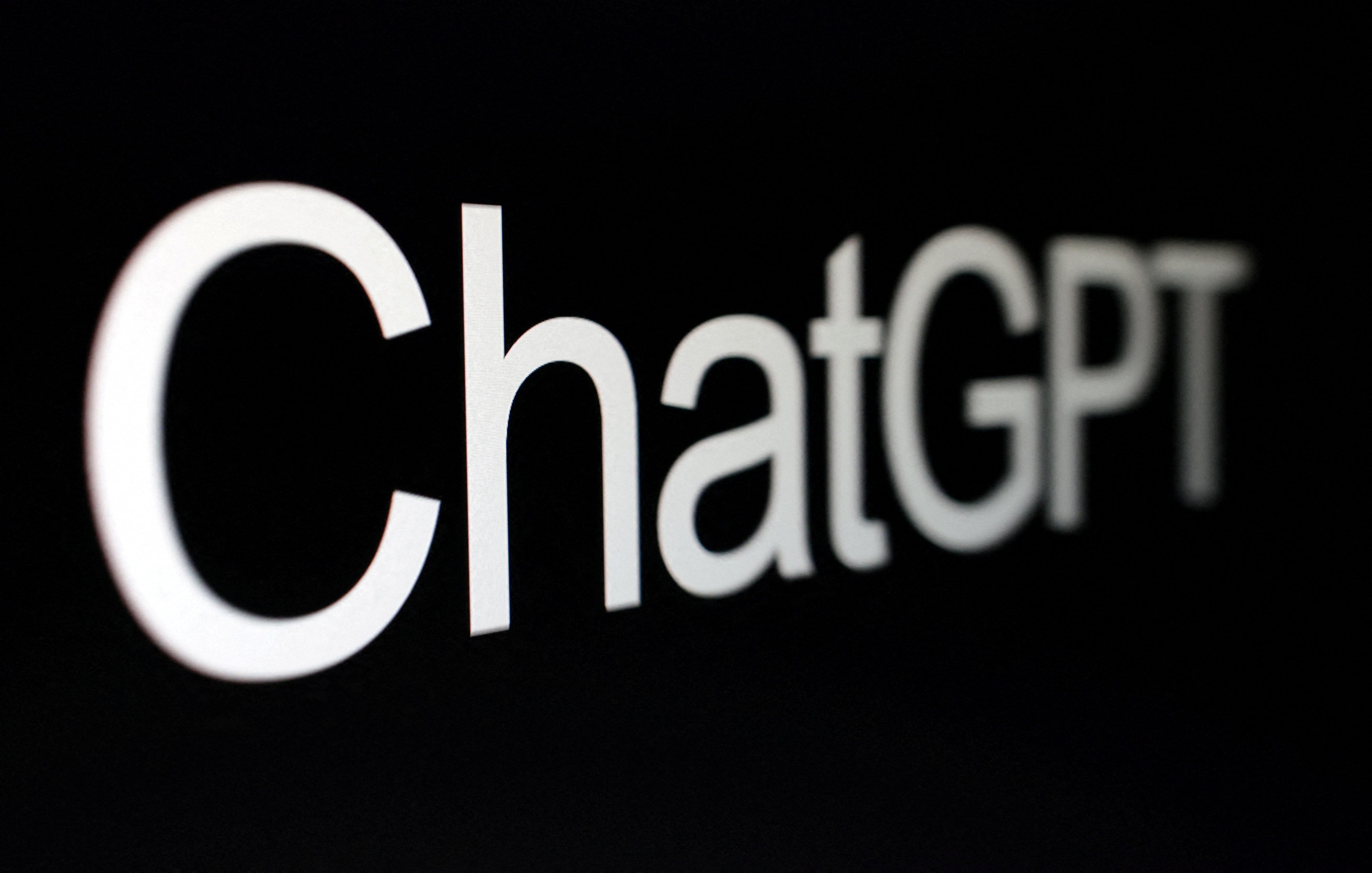Space, robots and scammers: How AI-written stories brought one sci-fi publisher to a standstill
Can artificial intelligence really replace human creativity? Author David Barnett hopes not but the uptick in people using ChatGPT et al in an attempt to make a quick buck presents a whole new challenge for editors


In August 1957, while on a live televised panel, the American science fiction author Isaac Asimov was challenged to write a short story right there, on the spot. He set to scribbling and came up with a short piece titled “Insert Knob A in Hole B”, a piece that riffed off Asimov’s well-worn tropes of robots and space.
The story, just shy of 300 words, was published in the Magazine of Science Fiction & Fantasy three months later and made it into Asimov’s 1969 collection Nightfall and Other Stories.
In the story, two astronauts on a space station are getting fed up with having to do all the maintenance, using equipment they generally have to assemble themselves with unclear instructions. So they are delighted when their bosses on Earth agree to send them a robot to do all the donkey work. However, when the crate arrives from the cargo ship, the robot is in bits and needs assembly, and the instructions are as clear as mud.
As a little experiment, I put the entire text into the prompt box of ChatGPT, the artificial intelligence text generator launched by the company OpenAI in November, and gave it a loose instruction to “update the story”.
It took Asimov 20 minutes to write “Insert Knob A Into Hole B”, while chatting to the other panelists. He later said he’d been semi-prepared with an idea, as he had a feeling he might be asked to do that. Still, no mean feat.
It took ChatGPT exactly 43 seconds to come up with its own version. Had you been unaware of Asimov’s original story, you might think this a mildly entertaining little piece, with a nice punchline at the end – more of an extended sci-fi joke, really, just like the source material. The “updating” seemed to involve making both human characters female, and giving them less Westernised surnames – Nguyen and Patel. The dialogue has been tweaked slightly, but essentially it’s the same tale.
Why bother doing this? Because an increasing number of people are using ChatGPT and other emerging AI text tools to write fiction, sometimes making no bones about the fact, and other times disguising it as their own work.
The growth was slow and the numbers were always manageable, so the sudden spike was a surprise ... what we didn’t expect was to be targeted by (destined for failure) money-making schemes
So much so that one leading science fiction short story magazine in America last month had to close submissions because it was being flooded by AI-generated stories.
Clarkesworld, which has been published monthly in physical and online form since it was launched in the US by Neil Clarke in 2006, has a global reach for both readers and writers, and is considered one of the premier short story markets in the genre.

Clarke, based in New Jersey, this week closed down the online submissions portal after the number of AI-generated stories he was being sent became “out of control”. He said: “In the last decade, we’ve only closed for software and server updates. We didn’t even close after my heart attack in 2012. The only reasonable option was to close so we could process the legitimate submissions and gain some breathing room to figure out what to do next.”
In the month to date, Clarke says he had received 500 obviously “machine-written” stories, and 50 in just a few hours leading to his decision to pull down the shutters on the magazine’s submissions. Clarkesworld normally gets around 1,100 fiction submissions over a month.
He believes that most of the submissions, written using ChatGPT and other AI text-generating tools, are from people outside the science fiction and fantasy community, suspecting “a side hustle guru or website’s advice on how to make some quick money” is behind the flood.
“Given the avenue by which many of these submissions are coming to us, I don’t think we’re dealing with people familiar with SF/F or its magazines,” Clarke says. “We started observing the seeds of this behaviour in the early days of the pandemic. The growth was slow and the numbers were always manageable, so the sudden spike was a surprise. It took more than the tools themselves to make this happen. What we didn’t expect was to be targeted by (destined for failure) money-making schemes.”
Clarke is not revealing what tools he and his team have used to detect the AI-written submissions so as not to give away the weeding-out process, and adds: “The actual number is probably a bit higher because there were some suspicious works that may or may not have been machine written or assisted. We err on the side of caution when flagging these. If one of those works was ever good enough to consider for publication, we would have invested more time in confirming whether or not they were.”
He’s been in conversation with other editors in the genre magazine field who have also been similarly affected, and says it’s “only a matter of time before it impacts a broader number of markets”.
Clarke says: “Those of us in the first wave seem to have been largely ‘always open’ markets, as opposed to those that only have occasional submission periods. Pay rate also appears to be a factor. That put us on certain lists that have been vectors for these submissions. The people, sites and channels behind those lists are always looking for more content for that crowd.”
Now Clarke and his fellow editors have to work out how to update their submissions processes to stop drowning in AI-written stories, without deterring genuine writers who are trying to get published.
On the input side, most people are more comfortable being interviewed by a person rather than an app asking them deeply personal questions
He says: “There’s a lot of discussion but most of the options are unfriendly to new, international, or other groups of authors. It’s important to keep those groups in the fold, particularly when there’s more than enough markets employing practices that challenge them as it is. We’re aware of the detection tools that exist, but the failure rates on our test data are much too high and the costs prohibitive.”
Reuters reported last month that there were more than 200 ebooks in Amazon’s Kindle store as of mid-February listing ChatGPT as an author or co-author, including How to Write and Create Content Using ChatGPT, The Power of Homework and poetry collection Echoes of the Universe. And the number is rising daily. There is even a new sub-genre on Amazon: Books about using ChatGPT, written entirely by ChatGPT.

But, said the report, due to the nature of ChatGPT and many authors’ failure to disclose they have used it, it is nearly impossible to get a full accounting of how many ebooks may be written by AI.
Is AI going to put writers out of a job? Perhaps not just yet – per my own example above, it’s either going to be thinly disguised plagiarism, or the sort of writing that rings alarm bells with seasoned editors such as Neil Clarke.
Because there’s one thing missing, even with the fullest of prompts from the AI user – the human touch. While AI is being dourly predicted to signal the end of copywriting and journalism, some sectors of publishing are a little less pessimistic.
Rutger Bruining is founder and CEO of StoryTerrace, which provides a memoir-writing service, with writers interviewing their subjects exhaustively and putting together their life stories.
“When it comes to writing memoirs, human writers can have a significant impact on making the best book and experience for the subject,” he says. “On the input side, most people are more comfortable being interviewed by a person rather than an app asking them deeply personal questions. Grabbing a cup of tea together or talking about the paintings in someone’s house can break the ice and allow someone to open up.
“The nuances involved in memoir writing require a deep understanding of the important themes in a person’s life and what they mean to that individual. This may be reflected by a throw-away comment or someone’s non-verbal body language when a question was asked.”
Where AI can help is making the process more efficient: scheduling meetings, proofreading, making editing suggestions, adding context about historic events and locations, etc.
While we can’t predict how robust or accurate AI systems will get in the next few years, one thing is certain; the AI race has just begun
Shelley Frost is one of the professional ghostwriters working with StoryTerrace. She says: “From what I understand AI is on track to improve upon itself, becoming better and better over time. This is terrifying and I feel the angst of my writer friends. However, thankfully for a writer such as myself who primarily writes memoirs, I have tried and failed to envision a way for AI/ChatGPT to take over my job.
“The very nature of ghostwriting a person’s memoir is human interaction. My job is to build a friendship with my client through age-old and very human behaviours of social interactions. During our conversations, I take note of my client’s vernacular, accents, laughter and facial expressions. I can suss out what triggers my client’s joy, anger and delight. I cannot tell you how many times I have cried with my clients and all the times we have laughed until we cried! From what I know, a computer is incapable of such experiences.”

What is certain, though, is that we are at the beginning of the AI revolution. ChatGPT only launched four months ago; already Google has announced its rival version, Bard, and many more interfaces are set to enter the market.
WriterBuddy is another tool, designed for writing social media posts and blog entries, launched in November. The company commissioned some research into investment into AI technologies, and says it’s basically the next Silicon Valley goldrush.
A spokesperson for WriterBuddy says: “Corporate AI investment has risen consistently to the tune of billions. The investment soared from $12.75bn in 2015 to $93.5bn in 2021, marking a remarkable 633.33 per cent increase over the six-year period.
“While we can’t predict how robust or accurate AI systems will get in the next few years, one thing is certain; the AI race has just begun. Our findings reveal that AI-focused start-ups have the potential to raise billions in funding, demonstrating corporate investors’ confidence in artificial intelligence. Time will tell who will dominate the space, but OpenAI, with the launch of ChatGPT, seems to be doing everything fine.”
Fine from the AI companies’ point of view, of course. For everyone else, especially those in writing and publishing, it’s a revolution that could be a rough ride.
Neil Clarke says: “Short fiction magazines are used to facing challenges but the next couple of years are shaping up to be more than any of us expected. Between Amazon’s recent decision to end its support of digital subscriptions – a major source of revenue for some of us – and this, we’re going to have our hands full.”
Join our commenting forum
Join thought-provoking conversations, follow other Independent readers and see their replies
Comments
Bookmark popover
Removed from bookmarks